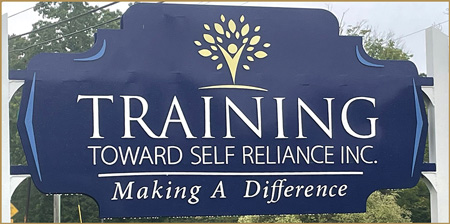TTSR Mission Statement
Training Toward Self Reliance, Inc believes that all individuals diagnosed with a cognitive or developmental disability can acquire the skills necessary to contribute positively in their homes and communities. These individuals want to have an “Everyday Life” that is typical of the general population. They want more in their lives and they have a greater knowledge and have come to expect more from their support team. These individuals want to have self-determined lives and as they grow, welcome the opportunity to have a say in who they are evolving into as a person. This means with the support of family and friends as well as their day to day care takers and county supports, each individual can decide: how to live their lives; what supports they need; and how they want to spend money in their individual budgets. It also means they are responsible for their decisions and actions as it pertains to their day to day lives and interactions with others.
Choice in all aspects of life including the services they receive, who provides supports, where to live and with whom, where to work, recreation and leisure activities, community outings, planning individualized day activities, and having support provided at home.
Control over their life including relationships, budgets and how money is spent, supports and services they receive, medical issues and planning.
Quality of life determined by individuals. People want quality supports and services to enable them to have the life that they want. When they pay for high quality supports, they expect to get high quality results.
Stability - - feeling secure that all changes in their lives are made only with their input and permission. Receiving consistent services while in the home and community.
Safety - - to be safe at home, work, school, and in their community, as well as in all other aspects of their lives. People want services that ensure individual health and safety without being overprotective or too restrictive.
Individuality - being known for their individuality and being called by their name. Being respected and having privacy over their mail, files and personal information, and history. Being able to choose to have private time in their homes.
Relationships - with direct support professionals, family, partners, neighbors, and members of the community. Having supports that foster these relationships.


